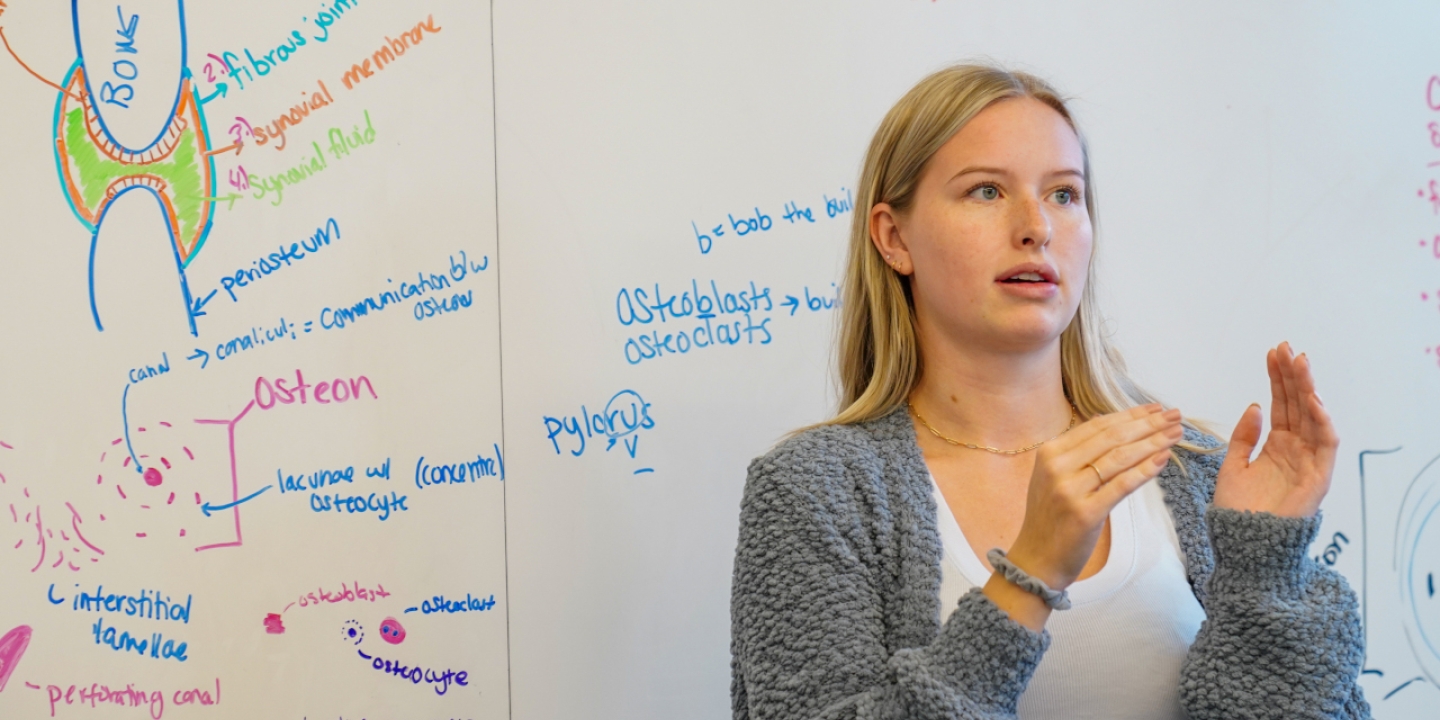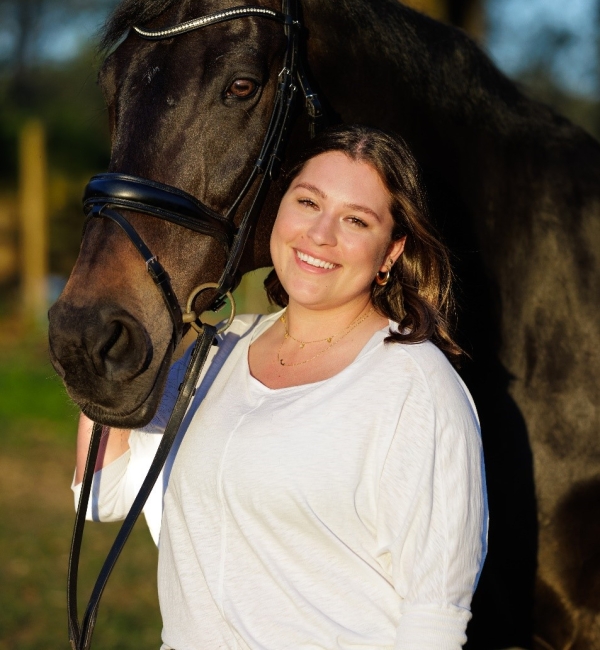Hadley, Class of 2027
When did you decide to pursue veterinary medicine?
I always thought about becoming a veterinarian but I did not fully commit until freshman year of undergrad! Even though I grew up riding horses and we always had dogs at home, it was so uncommon in my home island of Trinidad to view any animal career as a viable option. I therefore had alot of familial pressure to pursue a different career path. I had an internal battle of following my heart and working with animals or listening to my family and choosing a more ‘typical’ career. I took a gap year after highschool to work at a barn with competition horses and spend time thinking about what I truly wanted. I figured if I still had a smile on my face at 5am going to the horseshow week after week, it was unlikely to ever change. Then, once I began taking my Animal Science courses during undergrad, getting true hands on experience with animals other than horses, and shadowing different vets in my area it clicked that veterinary medicine was truly something I had a passion for and could see myself doing for the rest of my life!
What did you do to prepare for veterinary school?
I originally started gaining experience with vets through shadowing opportunities that popped up whenever a horse at the barn needed a farm visit or taking my dogs to the clinic for regular health appointments. I made sure to always introduce myself and ask if I could watch treatments or procedures on both my animals and others. From there I began volunteering at my university’s small animal hospital and putting my skills from growing up at the barn to use working as a technician in a large animal hospital. These experiences on many different services gave me a strong clinical background to bring to vet school. I was also involved in research for 3 of my 4 years in undergrad where I participated in competitions, presentations, and helped publish papers. This allowed me to experience the other side of vet med that is based in investigation and research.
What advice do you have for high school or college students who are interested in becoming a veterinarian?
Tell everyone that you want to go to vet school! Tell professors on the first day of class, tell coworkers, tell club mates! Veterinary medicine is such a small world that making connections is the best foundation for finding opportunities to get involved and to learn more about the field. I can’t count the number of times I have randomly shared with someone that I was in vet school or applying to vet school and they brought up that they knew a vet and would introduce us if I wanted. From those small, unseeming connections I have been able to form relationships that grew into mentorships and more. If you’re willing to put the work in, someone in this field is willing to take a chance on you!
Why did you choose Cornell and what do you enjoy most about the veterinary program?
Cornell has been my dream veterinary school since before I even committed to going to vet school, as funny as that sounds. I love the curriculum we have here with problem-based learning and a large focus on developing clinical thinking processes and cognitive skills. I really enjoy the holistic approach to patient care and the fact that we get to start honing our skills with real animal experience from year 1! The first time you listen to an animal’s heartbeat will not be in your first clinical rotation of fourth year, it will be during your first week of vet school ever! The professors really do want you to succeed here and remind us that the competition to get into vet school is over, now we get to focus on learning about a field we love!




